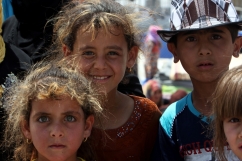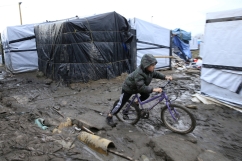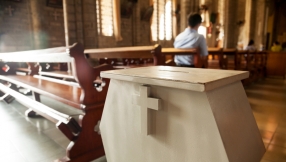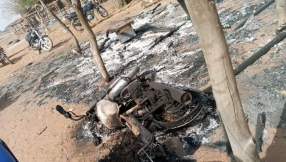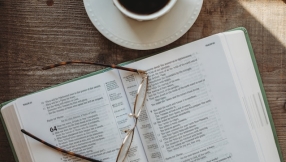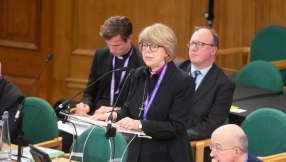The number of refugees around the world is at its highest ever level.
This is according to the UN refugees agency, who have estimated 65.3m people were displaced by conflict in 2015, 5m more than the previous year. That means one in every 113 people worldwide is a refugee and marks a 50 per cent rise in the last five years.
As he released the report, the UNHCR chief warned of a worrying "climate of xenophobia" in Europe as the continent grapples to control the massive influx.
"The refugees and migrants crossing the Mediterranean and arriving on the shores of Europe, the message that they have carried is that if you don't solve problems, problems will come to you," UN High Commissioner for Refugees Filippo Grandi told a news briefing.
"It's painful that it has taken so long for people in the rich countries to understand that," he said. "We need action, political action to stop conflicts, that would be the most important prevention of refugee flows."
The figures, released annually, mark World Refugee Day, show that despite the focus on Europe, the overwhelming majority of refugees (86 per cent) were hosted in low or middle income families. Turkey was the biggest host country with 2.5 million refugees followed by Pakistan and Lebanon.
Over half the total number of worldwide refugees come from just three countries: Syria, Afghanistan and Somalia.
The crisis has caused a rise in anti-immigration parties in Europe with a number of states re-establishing border controls. Although a deal has now been reached between the European Union and Turkey, it has been heavily criticised by human rights groups.
Asylum-seekers fleeing conflicts or persecution are increasingly confronted with walls or anti-foreigner sentiment, Grandi said. "The rise of xenophobia is unfortunately becoming a very defining feature of the environment in which we work.
"Barriers are rising everywhere - and I'm not just talking of walls. But I'm talking about legislative barriers that are coming up, including in countries in the industrialized world that have been for a long time bastions of principle in defending the fundamental rights linked to asylum."
Grandi added the deal had not solved the problem.
"The fact that that flow has stopped does not mean the problem of displacement has ended. It may have ended for some countries that don't have to deal with it anymore, for now," he said.










